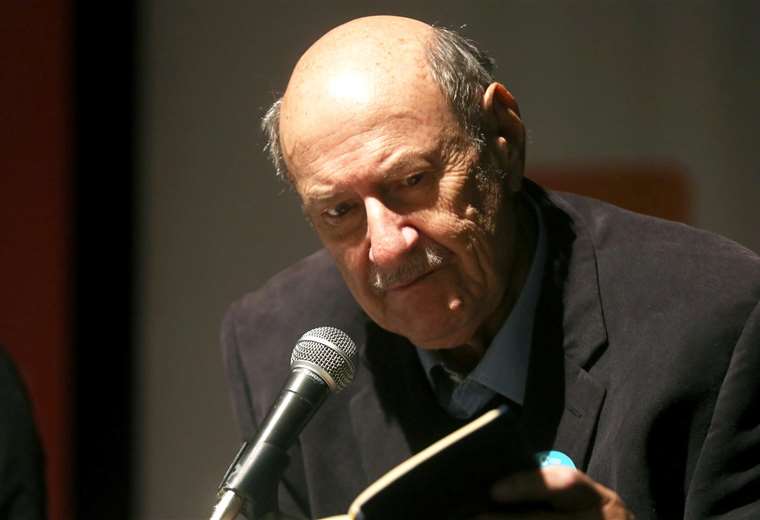October 15, 2024, 10:50 AM
October 15, 2024, 10:50 AM
The famous Chilean writer Antonio Skármeta, one of the leaders of Latin American literature, died at the age of 83, the University of Chile, his alma mater, reported this Tuesday.
Skármeta, winner of the Planeta Prize in 2003 for the ‘Victory Dance’, is known for the film adaptations of his works, and in particular for the film ‘Il Postino’ or ‘Neruda’s Postman’.
“Our university community regretfully bids farewell to Antonio Skármeta Vranicicwriter, National Literature Prize 2014, graduate of Philosophy and academic from the University of Chile in multiple stages of his inspiring career that promoted reading and the love of books,” the University announced through social networks.
One of the first to mourn his loss and highlight his contribution to Chilean literature in particular and Latin American literature in general was the President of the Republic himself, Gabriel Boric, also with a message on social networks.
“Thank you, teacher, for the life you lived. For the stories, the novels and the theater. For the political commitment. For the book show that expanded the boundaries of literature. For dreaming that the snow was burning in the Chile that hurt you so much. “said the president.
Philosophy, literature and a lot of cinema
Born in the northern Chilean city of Antofagasta in November 1940, Antonio Skármeta Vraničić is one of the most creative and influential intellectuals in Chile, a born storyteller with a great talent for condensing life and philosophy within the story, the format that was dearest to him.
Graduated in Philosophy and Education at the University of Chile, he grew up as a writer under the influence of the Spanish thinker Francisco Soler Grima, a disciple of Julián Marías and José Ortega y Gasset, about whom he wrote in 1963 his doctoral thesis ‘Ortega y Gasset, language, gesture and silence’.
A lover of the thought of Jean-Paul Sartre, Albert Camus and Martin Heidegger, a year later he won a Fulbright scholarship and traveled to Columbia University in New York, where he wrote a second thesis, this time around the narrative of Julio Cortazar, another of the greatest Latin American authors.
But international fame would come to him through his novels and in particular through the film adaptation of some of them. In particular, his book Ardiente Paciencia (1983), from which two films came out: one under the same title and another, the most famous, as ‘Neruda’s postman’.
Left-wing intellectual, member of the Popular and Unitary Action Movement in the years of the Popular Front Government and the socialist president, Salvador Allende, Skármeta was forced to leave Chile after the military coup led by General Augusto Pinochet (1973), which He plunged the country into one of the bloodiest dictatorships in Latin America.
After passing through Argentina and other countries, in 1981 he settled in Germany where he wrote the story of Neruda’s postman: first for German radio and then as a script.
The work was enormously successful and catapulted him to fame: it was translated into thirty languages, adapted to film, theater, opera and radio, and according to the author himself in an interview “there are more than a hundred versions in the world.”
He returned to Chile in 1989, the same year that the dictatorship ended. and he continued his life there as a university professor, academic and even diplomat in Germany.
On September 7, 2015, he was elected a full member of the Chilean Academy of Language to occupy seat number 20, which was vacant after the death, the previous year, of Óscar Pinochet de la Barra.
Also brought to the big screen in 2009 were his works ‘The Dance of Victory’, with which he won the renowned Planeta award, from the director Fernando Trueba, ‘El plebiscito’, the basis for the film ‘No’ (2012) by Pablo Larraín, and ‘A family father’, recreated by the Brazilian filmmaker Selton Mellon under the title ‘O filme da minha vida’ or ‘The movie of my life’ (2017).
















